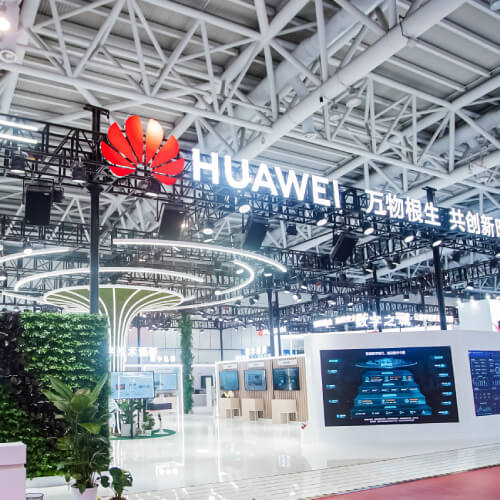ESG filings show us what vendors don't want us to know
In some areas the big vendors are equally terrible, but Huawei needs to lift its disclosure game.

Reputation and social license count for a lot these days, as the proprietor and shareholders of Tesla are now learning.
More than 90% of S&P 500 companies now publish ESG (environmental, social and governance) reports in some form, according to a McKinsey analysis.
There is some blowback against ESG, but it's mostly political and is certainly not coming from business. Inflows into sustainable funds rose from $5 billion in 2018, to nearly $70 billion in 2021 and $87 billion in the first quarter of 2022.
ESG offers a methodology for dealing with externalities, which is economist-speak for problems that businesses create, like air pollution and greenhouse gases, that can't be solved by regular market competition.
As it happens Huawei has just won a national award from the Sina group as China's "Most Socially Responsible Enterprise" for 2022.
Figure 1:  In some areas the big vendors are equally terrible, but Huawei needs to lift its disclosure game.
In some areas the big vendors are equally terrible, but Huawei needs to lift its disclosure game.
(Source: Huawei)
It is a mystery as to why; Sina does not trouble with a citation, let alone an explanation of the methodology.
Which is a pity because there are actual metrics for tracking corporate social responsibility and Huawei itself applies them in its annual sustainability report. More on this later.
But first let us visit Huawei's latest contribution to ESG literature, a white paper on "Huawei's approach to fairness, equity and opportunity," which dropped last month.
How not to do ESG
The white paper is something of a landmark in its own way. It should be required reading for all ESG managers in demonstrating how not to report on ESG.
Tellingly, no one at Huawei was willing to put their name to it. The document has been signed off by an anonymous "executive sponsor."
The authors, whoever they might be, declare they want to take a different route from conventional ESG reports that, in their mind, "focus merely on achieving some sort of statistical balance... among an employee population."
Instead, they insist "progress toward fairness requires a more ambitious, innovative mindset, one that aspires to provide a level-playing field not just for our employees but for all."
The predictable result of this half-baked formulation is a list of Huawei tech outreach schemes and brief profiles of staff. It is not encumbered by any metric that charts Huawei's bold "progress toward fairness."
For example, Huawei's international ICT academy apparently hosts an annual contest that last year attracted 150,000 people from 70 countries. That's the sum total of information about that exercise.
Huawei may believe that these random data fragments reflect its ambitious and innovative mindset but we gather nothing about how they contribute to fairness, equity or anything at all.
By contrast, Huawei's annual sustainability report is a serious document based on Global Reporting Initiative (GRI) standards.
It tells us a good deal about what Huawei is doing in sustainability and social equity.
It's just as revealing in what it does not report on.
Only Ericsson discloses on women's pay
For example, it makes no disclosures about generous state financial assistance to Huawei, on non-compliance with environmental laws or where right to freedom of association is at risk.
But guess what? Neither does Ericsson or Nokia.
The ESG data from the three competitors show they are equally terrible at some things.
Like women's representation, to take an obvious example. Just 22% of Nokia's workforce is female, 25% of Ericsson's and 21% of Huawei's.
There is a specific reporting category for women's pay in relation to men's, but only Ericsson reports on this (it's 82%). Huawei and Nokia don't share any detail.
But in a number of significant areas, Huawei is the odd one out. Ericsson and Nokia both report on the level of work-related injuries and accidents. Huawei is silent.
Ericsson and Nokia provide some disclosure on customer privacy and security incidents. Huawei, in what can only be described as a missed opportunity, does not touch this topic that has so often tripped it up.
Want to know more? Sign up to get our dedicated newsletters direct to your inbox.
There's not the room to discuss these further but these filings are a guide to how far vendors want to push values of responsible behavior through their global supply chains. They also tell us what they don't want us to know.
ESG reporting is still a work in progress but it's not going away.
Related posts:
– Robert Clark, contributing editor, special to Light Reading
About the Author(s)
You May Also Like


_International_Software_Products.jpeg?width=300&auto=webp&quality=80&disable=upscale)








